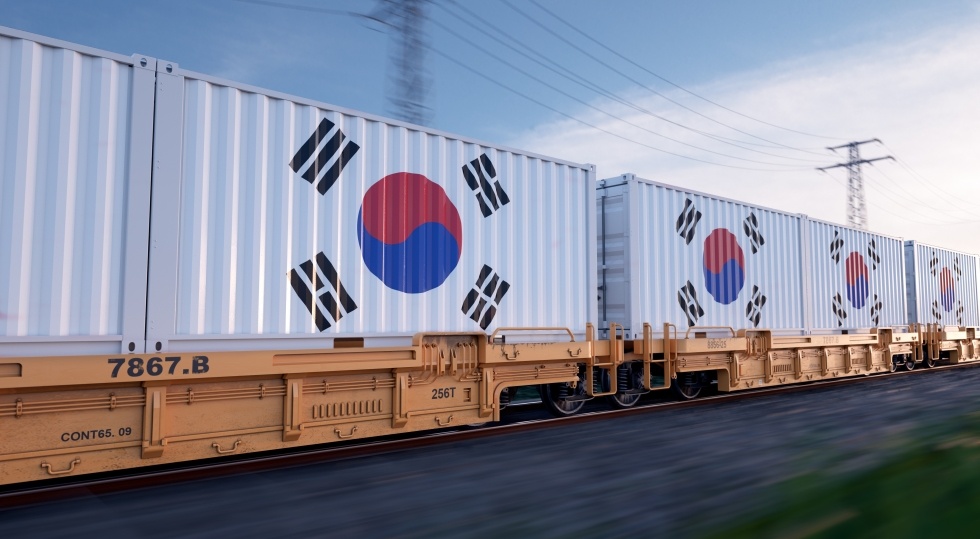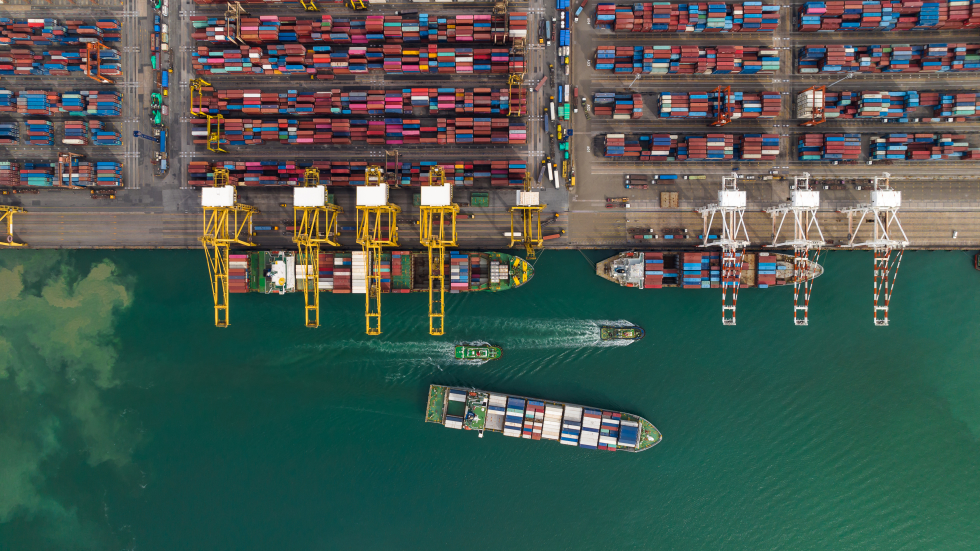Unlocking Prosperity: South Korea's Export Triumphs in 2024
Explore South Korea's export brilliance in 2024. Discover key industries, innovations, and future frontiers shaping global trade success.

In the ever-evolving sphere of global trade, South Korea stands as a bastion of innovation, technological brilliance, and economic dynamism. As we navigate the transition from 2023 to 2024, this comprehensive guide delves into the intricacies of South Korea's export landscape, unraveling key industries, emerging trends, and promising prospects for businesses involved in the import-export domain.
Discovering the Export Dynamo of South Korea
The export-driven economy of South Korea has been a linchpin in its impressive economic growth and worldwide influence. Ranking among the foremost global exporters, the nation's success is underpinned by diverse industries, spanning technology, automotive manufacturing, and cultural exports like K-Pop. This guide unveils opportunities for businesses looking to establish or expand their global footprint.
Revolutionary Technology and Electronics Sector
Renowned giants such as Samsung and LG have solidified South Korea's reputation for innovation and quality in technology and electronics. From semiconductor manufacturing to cutting-edge advancements in 5G technology, AI, robotics, and electric vehicles, South Korea's expertise propels its export success, contributing significantly to the nation's economic prowess. Commitment to research and development and active pursuit of free trade agreements have sustained South Korea's leadership in the competitive global landscape.
Thriving Automotive Industry
Led by companies like Hyundai and Kia, the Korean automotive industry has undergone remarkable growth, focusing on eco-friendly and electric vehicles. This shift aligns with global trends towards sustainable transportation solutions, presenting significant opportunities for international partnerships and exports. The sector's dedication to innovation positions South Korea as a major player in the evolving automotive landscape.
Global Acclaim in Shipbuilding
South Korea's shipbuilding industry, dominated by major players like Hyundai Heavy Industries and Samsung Heavy Industries, boasts global acclaim for constructing high-quality vessels. From container ships to LNG carriers, South Korean shipbuilders leverage advanced engineering capabilities and a skilled workforce. Adaptability to sustainability trends, emphasizing eco-friendly designs and alternative fuels, ensures the industry's sustained prominence in the dynamic global maritime market.
South Korea's Global Exports: A Diverse Tapestry
Understanding the breadth of South Korea's exports is crucial for businesses seeking to engage with this economic powerhouse.
1. Technology and Electronics Manufacturing
South Korea's technological prowess is showcased in its exports, focusing on semiconductor manufacturing, telecommunications, and consumer electronics. The nation's expertise in 5G technology, AI, robotics, biotechnology, and electric vehicles positions it as a global innovation powerhouse.
2. Automotive Industry
The Korean automotive industry, represented by companies like Hyundai and Kia, has witnessed remarkable growth. With a focus on eco-friendly and electric vehicles, there is significant potential for partnerships and exports in this sector as global markets shift towards sustainable transportation solutions.
3. Petrochemicals: Oil and Gas
South Korea's petrochemical industry, driven by companies like SK Innovation and LG Chem, is a key player in the global market. Rooted in the oil and gas sector, it produces essential chemicals for products like plastics and fertilizers. Despite challenges such as volatile commodity prices, South Korea remains proactive in adopting sustainable practices within the petrochemical sector.

Navigating Global Alliances: South Korea's Key Trade Partners
The success of South Korea's export economy is intricately linked with its trade partnerships across the globe. Understanding these relationships is crucial for businesses aiming to navigate the international trade landscape.
United States: A Major Trade Partner
The economic relationship between South Korea and the United States has grown significantly over the years, fostering trade and investment in various sectors. The automotive industry holds particular significance, with South Korean manufacturers making a notable presence in the U.S. market.
The United States and South Korea have a free trade agreement called the United States-Korea Free Trade Agreement (KORUS). This agreement has played a pivotal role in reducing tariffs, eliminating barriers, and promoting a seamless flow of goods and services between the two countries.
Beyond trade, both nations collaborate in areas such as defense and technology cooperation, showcasing a multifaceted and robust economic partnership.
China: South Korea's Top Export Destination
China's economic relationship with South Korea has witnessed exponential growth, fostering a strong trade partnership. South Korean exports to China include electronics, automobiles, machinery, petrochemicals, and consumer goods. The China-South Korea Free Trade Agreement has further strengthened this relationship by reducing tariffs and trade barriers.
The Hallyu Wave, representing the global popularity of Korean entertainment and culture (K-Pop), has significantly contributed to increased exports to China. Korean music, TV dramas, movies, cosmetics, and fashion have captured the interests of Chinese consumers, leading to a surge in demand for these products.
Trade Relations with Japan
South Korea and Japan share a substantial and complex trade relationship. While both nations are significant trading partners, historical and political tensions have occasionally led to trade disputes. Recent challenges include issues related to export controls and security, impacting industries like semiconductors and displays.
Efforts are underway to address challenges, with dialogue channels and negotiations established to foster a more stable and prosperous trade relationship. Both countries recognize the importance of their economic ties and continue to engage in trade and economic cooperation.
Other Significant Export Partners
Apart from the United States, China, and Japan, South Korea has significant export partnerships with several other countries.
- Hong Kong: Serving as an important trade hub and re-export destination for South Korea, Hong Kong receives exports such as electronic devices, integrated circuits, and machinery.
- India: The trade relationship between South Korea and India has been growing steadily, with exports consisting of automobiles, machinery, electronics, and steel products.
- Singapore: Enjoying a robust trade relationship, South Korean exports to Singapore include machinery, petroleum products, chemicals, and electronic components.
- Vietnam: South Korea has significantly increased exports to Vietnam, covering electronics, machinery, automobiles, and textiles.
- United Arab Emirates (UAE): Strong economic ties are established, with South Korean exports to the UAE encompassing automobiles, electronics, machinery, and petrochemicals.
- Brazil: South Korea has been enhancing trade relations with Brazil, with exports including automobiles, machinery, electronics, and steel products.
Navigating Future Frontiers: Opportunities for South Korea's Exports in 2024
The Role of Globalization
South Korea's export landscape is profoundly influenced by globalization, offering multifaceted opportunities in the coming years. Advancements in transportation and communication facilitate access to diverse global markets, enabling South Korean exporters to efficiently reach consumers worldwide. Existing and potential trade agreements, such as KORUS, significantly contribute by reducing tariffs and eliminating trade barriers.
South Korea's technological prowess, particularly in electronics, telecommunications, and emerging technologies, opens new export avenues. Integration into global supply chains positions South Korean companies at the core of multinational production networks. The emphasis on sustainability and alternative fuels ensures the country's continued success in the dynamic global maritime market.
Emerging Markets and South Korean Exports
Emerging markets play a pivotal role in shaping South Korea's export landscape by presenting lucrative opportunities for growth and diversification. These markets, marked by rapid economic expansion and a rising middle class, provide fertile ground for South Korean exporters to meet increasing consumer demand. The establishment of trade partnerships, including free trade agreements, with emerging market economies further enhances South Korea's access to these regions, reducing trade barriers and fostering mutually beneficial relationships.
Additionally, South Korean companies leverage their expertise in industries like energy, mining, and manufacturing to tap into the natural resource-rich landscapes of emerging markets. As these markets undergo industrialization, South Korea's robust manufacturing capabilities position it to fulfill the demand for machinery and industrial equipment. The global appeal of South Korea's pop culture, exemplified by the "Korean or Hallyu Wave" phenomenon, has become a valuable asset for exporters in entertainment, cosmetics, fashion, and consumer goods.
Moreover, regional integration initiatives like ASEAN12,13 and the BRI14 create additional pathways for South Korean exports, fostering economic cooperation and infrastructure development. In summary, the strategic focus on emerging markets fortifies South Korea's position on the global export stage, offering a diverse array of opportunities for businesses across various sectors.
Government Initiatives to Boost Exports
The South Korean government is rolling out a series of dynamic initiatives to propel its export-driven economy into high gear. Spearheaded by organizations like KOTRA and the Ministry of Trade, these efforts go beyond mere trade promotion, actively connecting South Korean businesses with global buyers through trade missions and exhibitions.
Adding financial muscle to the strategy are South Korea’s export-import bank (KEXIM) and Korea Trade Insurance Corporation (KSURE), providing credit support and export insurance, effectively mitigating risks associated with international trade. This financial bolstering is crucial for South Korean companies engaged in export activities, ensuring they have a solid foundation as they navigate the complexities of the global market.
In tandem with these efforts, South Korea is aggressively pursuing free trade agreements (FTAs) with major economic players such as the United States, the European Union, and ASEAN. The aim is clear: break down trade barriers and create an optimal environment for South Korean exports to thrive on the international stage. This strategic move enhances market access and positions South Korea as a formidable player in the global trade arena.
Beyond trade agreements, the government's commitment to Research and Development (R&D) stands out as a key pillar. With funding programs, tax incentives, and grants, the emphasis is on fostering innovation and technological advancements among South Korean businesses. This proactive approach ensures that the nation's exports remain at the forefront of cutting-edge industries.
However, it's not just about the big players; the narrative takes a turn to highlight the unsung heroes of South Korea's export story—small and medium-sized enterprises (SMEs). The government extends special support programs tailored for SMEs, encompassing financial aid, export training, and market access support. This inclusive strategy ensures that SMEs, often overlooked, get their moment in the export success spotlight.






Comments 0